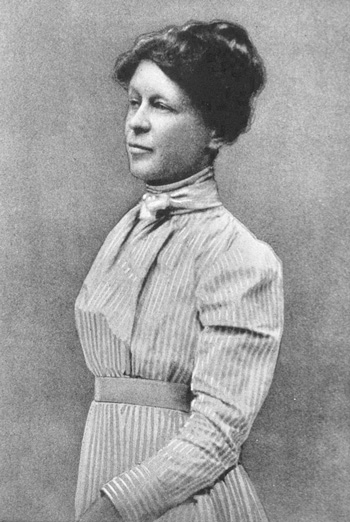 May 7, 2024 — Lavinia Dock, who studied nursing at Bellevue Hospital’s school for nurses in New York City in the late 1800s, is well known for her dedication to the field of nursing; and for her participation in both the labor and the suffrage movements.
May 7, 2024 — Lavinia Dock, who studied nursing at Bellevue Hospital’s school for nurses in New York City in the late 1800s, is well known for her dedication to the field of nursing; and for her participation in both the labor and the suffrage movements.
Her work took her from visiting nurse positions at charitable organizations, to supervising a temporary hospital ward for yellow fever patients, to writing Materia Medica for Nurses, financed by her father, which became the standard nursing school text on drugs and sold 100,000 copies.
As a member of the Women’s Trade Union League, she organized events for members and walked the picket line during the 1909 shirtwaist strike, when 20,000 workers, most of them women, walked off the job to protest long work hours and low wages. They demanded a 20 percent pay raise, a 52-hour work week, additional payment for overtime hours, and improved safety conditions.
“Lavinia Dock gave her considerable ability to the development of nursing as a profession. But she did not limit herself to a narrow professional involvement. She asked nurses particularly and certainly any specific group of women to look beyond their own interests to the broader needs and benefits of all. She was an example of a socially conscience and committed individual,” according to Mary Ann Bradford Burnam, a doctoral candidate at the University of Ohio.
Dock was a reformer, focused on the professionalization of nursing and the equality of women. She was among an early group of nurses committed to professionalizing nursing through development of organizations, improved educational standards, and registration.
“Some say her courageous stand for womens’ suffrage and womens’ rights was her greatest contribution to nursing,” according to an article on the Turning Point Suffragist Memorial website. She felt if nursing was going to be the profession that the early leaders envisioned, nurses would need the power and respect that only gender equality could offer. She is quoted in the NLN publication, “Open Mind” (1996): ‘We owe the existence of our profession to the womens’ movement. We owe it all that we are, all that we have of opportunity and advancement.’”

